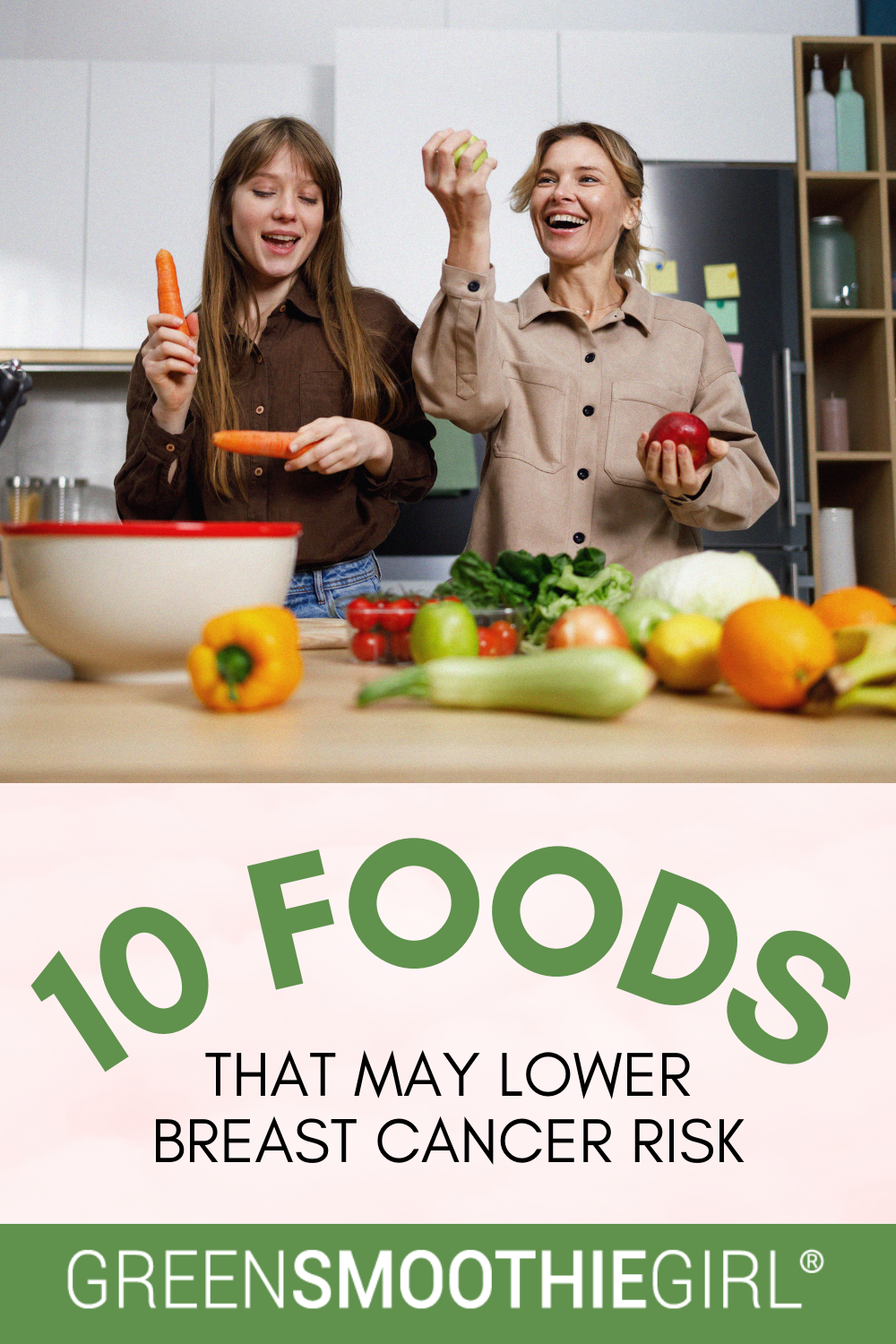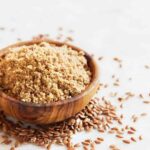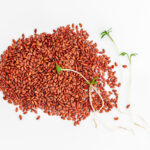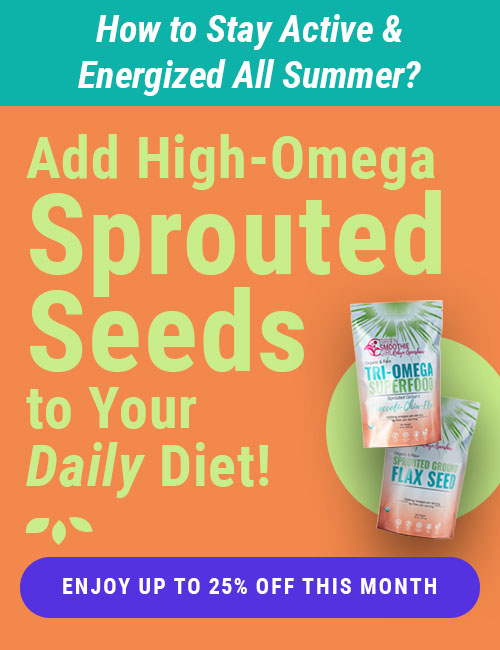10 Foods That May Lower Your Breast Cancer Risk
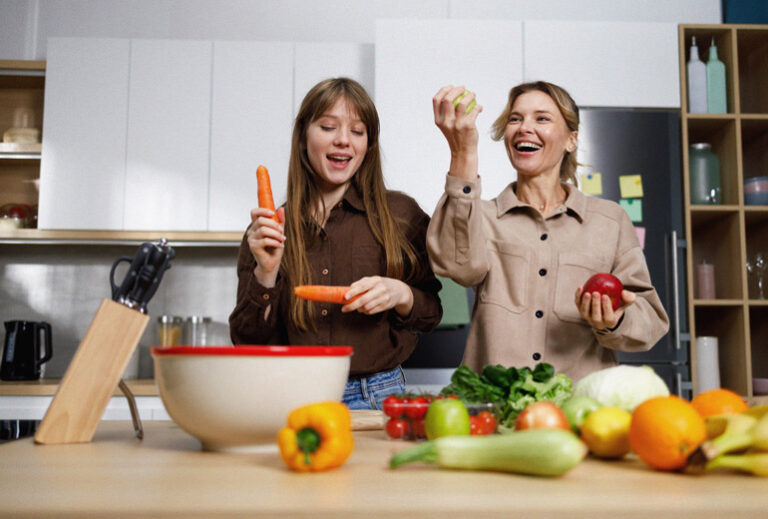
Actually, We All “Have” Cancer
The truth is: We all have breast cancer!
That is, your body produces about 50,000 malignant or malfunctioning cells every day.
Generally, you have a detectable mass when you have about a billion cancer cells, and they begin to organize and develop a vascular system or other self-sustaining systems.
Your immune system has been managing this every day of your life! “Having cancer” just means a mass or malignant overgrowth has finally been detected, which indicates a fundamental failure of the immune system.
That malignant growth has been growing an average of 8 years, by the time it’s detected, according to the consensus of doctors I interviewed, in a 20-clinic research tour all over the world.
So, if we all “have” cancer, the best idea is to eat healthier and use strategies to keep the immune system strong, because it kills and eliminates aberrant cells for us every day.
10 Foods That May Lower Your Breast Cancer Risk
#1 — Flax and Other Sprouted Seeds
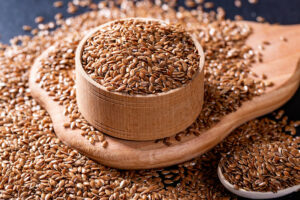
Flax seed is one of the most studied foods for preventing breast cancer
Flax seed is one of the most studied foods for preventing breast cancer.
It may be so powerful in part because of the lignan, a plant compound in flax that absorbs toxins and excess estrogens, to remove them safely from the body, which has been shown to prevent breast cancer.
Flax seed has the highest known concentration of lignans in any food, by far.
Clinical trials have shown that flax seeds can play an important role in decreasing breast cancer risk, especially in postmenopausal women.
Additionally, flax seeds are one of the best plant sources of omega-3 fatty acids. And studies suggest that omega-3s may have anti-cancer properties.1
One study on flax followed women for up to 10 years and found a 71% reduced risk of breast cancer mortality!2
Chia Seeds to Prevent Breast Cancer
Chia seeds are also rich sources of lignans.
Studies have shown that chia seeds can also reduce the risk of cancer metastasis, or the spread of cancer to other parts of the body.3
Sprouted Broccoli Seeds to Prevent Breast Cancer
Furthermore, sprouted broccoli seeds have been found to help protect against toxic compounds known to cause cancer.4
Broccoli contains high levels of the cancer-fighting compound sulforaphane – and broccoli seeds are an easy way to add this compound to your meals regularly.
Sprouted broccoli seeds also have about 10 times more glucoraphanin, a precursor to sulforaphane, than the plant itself, according to a discovery at Johns Hopkins.
My Recommendation to You to Help Prevent Breast Cancer
I have a sprouted, organic mix of ground flax, chia and broccoli seed called Sprouted Tri-Omega.
And I add a scoop or two, to my blender full of green smoothie. You can get $6 using the coupon code 6OFF.
#2 — Leafy Green Vegetables
Leafy greens, like kale, arugula, and spinach, contain carotenoid antioxidants. Higher levels of the antioxidants found in greens are associated with reduced breast cancer risk.5
A quart of green smoothie daily covers your greens AND can include a scoop of your organic, sprouted flax and other seeds! All in one daily habit. In fact, you can put your third food in the blender, too:
#3 — Cruciferous Vegetables
Cruciferous vegetables, such as broccoli, kale, cabbage, and cauliflower, may help lower your breast cancer risk.
Cruciferous veggies contain glucosinolate compounds, which have significant anticancer potential.6 A 2020 study published in the British Journal of Nutrition linked higher cruciferous vegetable consumption to a reduced risk of breast cancer.7
#4 — Allium Vegetables
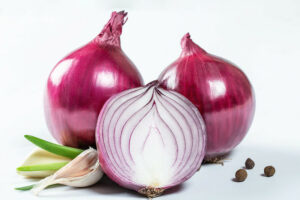
Onion and garlic have loads of anti-cancer nutrients
Garlic, onion, and leeks are allium vegetables. They contain an abundance of anticancer nutrients.8
High garlic and onion intake was tied to a reduced risk of breast cancer in a 2020 study published in Nutrition and Cancer.
Additionally, a 2016 study published in the Journal of Breast Cancer found that a high intake of raw and cooked onions has a protective effect.9
#5 — Citrus Fruits
Citrus fruits are packed with compounds that may prevent breast cancer.
A 2012 literature review of six studies involving more than 8,000 people linked high citrus intake to a 10% reduction in breast cancer risk.10
#6 — Berries
Antioxidants in berries have been shown to protect against cellular damage, as well as the development and spread of cancer cells.11
A 2013 study involving more than 75,000 women linked a higher intake of berries – and blueberries in particular – to a lower risk of breast cancer.12
#7 — Fermented Foods and Probiotics
Fermented foods, such as sauerkraut, kimchi, and miso, contain probiotics and other nutrients that may protect against breast cancer.13
Why? Research suggests that the protective effect is related to the immune-boosting effects of probiotics.14
80-90% of the probiotics I’ve tested show zero living cultures in the products people have sent me to test. I sprinkle one capsule of the probiotic brand on the top of ¼ cup of milk, at room temperature. You should see it thicken like yogurt, within 20 minutes, if your probiotic contains substantial living probiotic organisms.
80-90% of the probiotics I’ve tested show zero living cultures in the products people have sent me to test. I sprinkle one capsule of the probiotic brand on the top of ¼ cup of milk, at room temperature. You should see it thicken like yogurt, within 20 minutes, if your probiotic contains substantial living probiotic organisms.
PreZyme Pro has 15 different strains of beneficial organisms, 7 billion per dose, and is guaranteed to arrive to you with living probiotics that can culture milk, which is a good sign they’ll go to work in your gut, too, building a healthy microbiome.
The capsules contain prebiotics as well, and digestive enzymes to break down fats, proteins, and carbohydrates.
#8 — Beans
The fiber content in beans and other legumes like lentils may help protect against breast cancer.
The San Francisco Bay Area Breast Cancer Study of more than 4,000 women found that high bean intake reduced breast cancer risk by up to 20% compared to low bean intake.15
Additionally, those with the highest intake of beans had up to 28% reduced risk of breast cancer compared to those with the lowest intake in a 2020 study. 16
#9 — Whole Grains
If you’re anti-gluten, remember that whole grains can include quinoa, brown rice, and barley.
I am not convinced that the research on wheat products is really discovering issues with gluten–and reactivity for many people may be related to non-organic grains being sprayed–twice, actually–with glyphosate. (Roundup is the most common brand name for glyphosate.)
Plus, most wheat has been hybridized hundreds of times, and white flour is just the remaining part of the wheat, after they throw out the nutrient-dense “germ” and the fibrous “bran.”
A 2016 study found that consuming more than seven servings of whole grains each week was linked to a significantly lower risk of the development of breast cancer in women.17
#10 — Nuts
Consuming nuts has a long list of health benefits, including potentially preventing breast cancer.
A 2015 study showed that those who consumed the highest amounts of walnuts and almonds each week were two to three times less likely to develop breast cancer than those who didn’t consume any nuts.18
Another study published in Nutrition Research found that consuming two ounces of walnuts (about 25 walnuts) each day for two to three weeks led to significant changes in levels of genes that control the growth and spread of breast cancer cells.19
And, in a separate 2017 study, walnuts were able to block the growth of breast cancer by 63%!20
In Summary
Notice how the research on breast cancer and diet all show the benefits of eating every class of plant foods!
And, risk factors include alcohol, sugar, and animal products, especially processed meat.
Read Next: Check out my related blog post on the 7 Things to Avoid to Prevent Breast Cancer

Disclosure: This post may contain affiliate links that help support the GSG mission without costing you extra. I recommend only companies and products that I use myself.
Research
- Freitas, Raquel D S, and Maria M Campos. Protective Effects of Omega-3 Fatty Acids in Cancer-Related Complications. Nutrients vol. 11,5 945. 26 Apr. 2019, doi:10.3390/nu11050945
- McCann, Susan E et al. Dietary lignan intakes in relation to survival among women with breast cancer: the Western New York Exposures and Breast Cancer (WEB) Study. Breast cancer research and treatment vol. 122,1 (2010): 229-35. doi:10.1007/s10549-009-0681-x
- Khalid, Waseem et al. Chia seeds (Salvia hispanica L.): A therapeutic weapon in metabolic disorders. Food science & nutrition vol. 11,1 3-16. 15 Dec. 2022, doi:10.1002/fsn3.3035
- Nandini, D B et al. Sulforaphane in broccoli: The green chemoprevention!! Role in cancer prevention and therapy. Journal of oral and maxillofacial pathology : JOMFP vol. 24,2 (2020): 405. doi:10.4103/jomfp.JOMFP_126_19
- Aghajanpour, Mohammad et al. Functional foods and their role in cancer prevention and health promotion: a comprehensive review. American journal of cancer research vol. 7,4 740-769. 1 Apr. 2017
- Soundararajan P, Kim JS. Anti-Carcinogenic Glucosinolates in Cruciferous Vegetables and Their Antagonistic Effects on Prevention of Cancers. Molecules. 2018; 23(11):2983. https://doi.org/10.3390/molecules23112983
- Zhang N-Q, Mo X-F, Lin F-Y, et al. Intake of total cruciferous vegetable and its contents of glucosinolates and isothiocyanates, glutathione S-transferases polymorphisms and breast cancer risk: a case–control study in China. British Journal of Nutrition. 2020;124(6):548-557. doi:10.1017/S0007114520001348
- Pourzand A, Tajaddini A, Pirouzpanah S, Asghari-Jafarabadi M, Samadi N, Ostadrahimi AR, Sanaat Z. Associations between Dietary Allium Vegetables and Risk of Breast Cancer: A Hospital-Based Matched Case-Control Study. J Breast Cancer. 2016 Sep;19(3):292-300. https://doi.org/10.4048/jbc.2016.19.3.292
- Song JK, Bae JM. Citrus Fruit Intake and Breast Cancer Risk: A Quantitative Systematic Review. J Breast Cancer. 2013 Mar;16(1):72-76. https://doi.org/10.4048/jbc.2013.16.1.72
- Kristo AS, Klimis-Zacas D, Sikalidis AK. Protective Role of Dietary Berries in Cancer. Antioxidants. 2016; 5(4):37. https://doi.org/10.3390/antiox5040037
- Fung, Teresa T et al. Intake of specific fruits and vegetables in relation to risk of estrogen receptor-negative breast cancer among postmenopausal women. Breast cancer research and treatment vol. 138,3 (2013): 925-30. doi:10.1007/s10549-013-2484-3
- Fung, Teresa T et al. Intake of specific fruits and vegetables in relation to risk of estrogen receptor-negative breast cancer among postmenopausal women. Breast cancer research and treatment vol. 138,3 (2013): 925-30. doi:10.1007/s10549-013-2484-3
- Ranjbar, Sheyda et al. Emerging Roles of Probiotics in Prevention and Treatment of Breast Cancer: A Comprehensive Review of Their Therapeutic Potential. Nutrition and cancer vol. 71,1 (2019): 1-12. doi:10.1080/01635581.2018.1557221
- Mendoza, Luis. Potential effect of probiotics in the treatment of breast cancer. Oncology reviews vol. 13,2 422. 27 Sep. 2019, doi:10.4081/oncol.2019.422
- Sangaramoorthy, Meera et al. Intake of bean fiber, beans, and grains and reduced risk of hormone receptor-negative breast cancer: the San Francisco Bay Area Breast Cancer Study. Cancer medicine vol. 7,5 (2018): 2131-2144. doi:10.1002/cam4.1423
- Bigman, Galya et al. Matched Case-Control Study of Beans Intakes and Breast Cancer Risk in Urbanized Nigerian Women. Current Developments in Nutrition vol. 4,Suppl 2 310. 29 May. 2020, doi:10.1093/cdn/nzaa044_009
- Mourouti, Niki et al. Whole Grain Consumption and Breast Cancer: A Case-Control Study in Women. Journal of the American College of Nutrition vol. 35,2 (2016): 143-9. doi:10.1080/07315724.2014.963899
- Soriano-Hernandez, Alejandro D et al. The protective effect of peanut, walnut, and almond consumption on the development of breast cancer. Gynecologic and obstetric investigation vol. 80,2 (2015): 89-92. doi:10.1159/000369997
- Hardman, W Elaine et al. Dietary walnut altered gene expressions related to tumor growth, survival, and metastasis in breast cancer patients: a pilot clinical trial. Nutrition research (New York, N.Y.) vol. 66 (2019): 82-94. doi:10.1016/j.nutres.2019.03.004
- Jahanbani, Raheleh et al. Antioxidant and Anticancer Activities of Walnut (Juglans regia L.) Protein Hydrolysates Using Different Proteases. Plant foods for human nutrition (Dordrecht, Netherlands) vol. 71,4 (2016): 402-409. doi:10.1007/s11130-016-0576-z
Image notes
- Flax seed image used under a Creative Commons 2.0 license by Marco Verch
- Garlic and onion image used under a under a Creative Commons 2.0 license by Marco Verch
Posted in: Health Concerns, Holistic Care, Natural Remedies, Preventive Care, Whole Food




